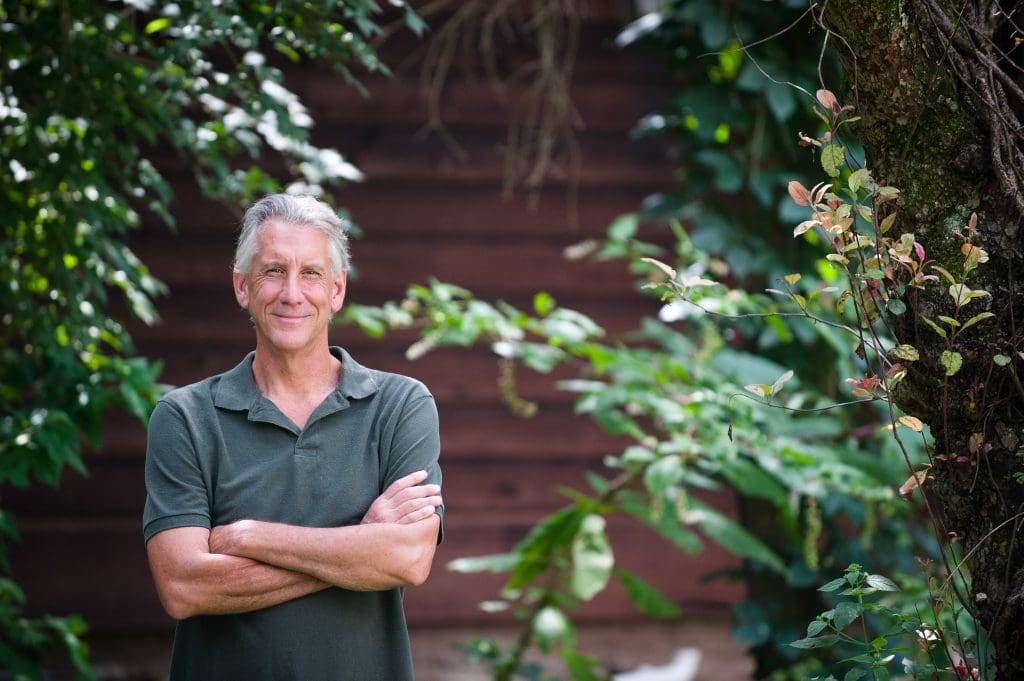
By Jim Poyser
In the Age of Covid, some silver linings are golden opportunities, if you don’t mind me mixing metallurgical metaphors. In late August, Wordpool Press published a collection of my short stories, The Last Actor and Other Stories.
That is not a sentence I thought I would ever type, as I had well over a decade ago decided I would no longer even try to publish my fiction.
Sometimes, it seems, giving up can give up on you.
Here’s how it came about: On Saturday, April 4, my friend Colleen Wells texted me to check in to see how I was doing. Those were the first frightening weeks of the coronavirus. Colleen and I have been close for a quarter century. She and I first met when she pitched a story to me at NUVO, where I was Managing Editor at the time. Her story explored the ins and outs of roadkill, and it made for a memorable and even award-winning cover story.
Right around the time we were texting that day, I had recalled that in the early-to-mid-90s I’d written a novella called “The Last Actor.” It imagined a world where a global pandemic has killed many, ransacking society and culture in the process. The premise focuses on the entertainment industry — TV and movies — desperate to retain its forms in the face of massive death and despair.

The world is depleted of trained and talented actors who are replaced by hapless novices.
I think at the time I was grappling with various things, not just the HIV/AIDS pandemic — at that point over a decade in duration — but also other potential global pandemics such as cholera and Ebola. It’s clear to me I was also processing the early days of reality television, though of course reality TV had been a thing at least since the Loud family in the 1970s. In the early 90s, however, this cultural form was really taking television by storm and upsetting the paradigm.
Luckily, I found “The Last Actor” in some ancient version of Word inside a folder inside a folder inside a folder in Russian nesting doll fashion and emailed it to her.
Within a day she proclaimed her desire to publish it. I had no idea she’d become Editor in Chief of Wordpool Press.
Here, in the Year of Unending Curses, a blessing descended up on me. I surrounded “The Last Actor” with ten additional stories, crafted over a span of decades from the 1980s to the most recent being early 2020. Now they sit together in one book, a dream I’d given up on, come true.
You can find the book to purchase, here.
A trail of failure.
From the earliest age, all I ever wanted to be was a writer.
Over the course of my life I have followed that personal identity trajectory any way I could, from trying out various genres of writing — fiction, non-fiction, theater, screenplays and haiku — to eventually, in the 1990s and 2000s, serving as an editor at weekly newspapers and literary periodicals.
No matter what else I was doing — painting houses, editing newspapers, teaching school children — writing remained the center of my life.
Here’s the problem, though: I couldn’t break through.
One of my screenplays was optioned and made the rounds — but nothing happened. I met with Hollywood producers on this and other screenplays. Nothing happened. Plays were written, sent out to theaters, summarily rejected. Fiction and satire were delivered to the citadels of success (The New Yorker, The Atlantic, Granta, etc.) only to be met with more rejection. Novels were written, agents queried, no one replied.
For decades I persisted in this absurd enterprise; more and more it felt like an exercise in my demise.
Yet no matter how many times I was rejected or cold-shouldered I would try again, sending out a story or screenplay, flooded with hope only to be crushed by disappointment. I began to call it the Hope and Despair Wheel. You’ve probably taken a spin on that wheel yourself.
As I was nearing my 50th birthday, over a decade ago, I decided to abandon the wheel altogether.
Why? Because I had self-identified as a writer and knew I had, essentially, nothing to show for it but a trail of failure.
It was the most difficult addiction I’ve ever fought: the addiction to my identity.
I’ve kicked cigarettes. That was hard, but it was tangible: Just don’t light one more cigarette the rest of my life. It’s easy when you think of it that way, especially after the physical withdrawal fades.
But identity? Identity is a fabrication, formed by oneself in relation to others. Sure, there’s some nature involved, but mostly it’s a construct, an act of ego.
How do you give up something that isn’t real?
Somehow I did, and I’m telling you in case you are considering something similar, that deconstructing my identity proved to be the most liberating feat. Into the breach flowed my discovery of the climate crisis, already in full flourish worldwide, that then lead to my current role as Executive Director of Earth Charter Indiana where I have found a home, facing the climate emergency.
Maybe ditching the Hope and Despair Wheel has prepared me to address the climate crisis without too much despair or too much hope. The physics is afoot; the planet will warm and extreme weather and its concomitant impacts will increase.
As the climate destabilizes and society unravels, perhaps this is the healing crisis we require to address human overshoot and systemic racism.
Full circle, so how does it feel?
I have a riot of feelings now that The Last Actor and Other Stories is published. I have two copies at the moment, one in my study, another in the living room. I’ll chance up on these books and have to shake my head. Is it really real? Something I wanted all my life has finally happened, of course I feel lucky and grateful and yet…
I’m feeling a little silly. Even selfish. I look at this book and I say “Is this what I spent all that time and energy and hope and despair on?” And, I wonder, “What if this had happened 30 years ago, who would I be now?”
I tell you one thing for sure. One of the very best parts of this whole process was getting the blurbs for the cover. Three of the blurbs came from writers well known to the Indiana Writers Center community: David Hoppe, Michael Martone and Scott Russell Sanders. These are writers whom I have admired for decades. For them to take the time to read my book and deliver delightful blurbs is an act of extraordinary generosity.
I like to think it speaks to the community of writers here in Indiana that IWC has been at the center of for over 40 years, building connections, camaraderie and coaching.
Writing to you on this IWC platform confirms this. I only regret this magical thing happened to me after Jim Powell passed away earlier this year. I’m certain he would have gotten a kick out of this little COVID miracle of mine; we would have shared quite the laugh.
About Wordpool Press
Wordpool Press is a Bloomington based press, headed up, as I mentioned, by Colleen Wells whose book, Dinner with Doppelgangers: A True Story of Madness and Recovery was published by Wordpool in 2015. It’s co-op kind of structure, with Colleen at the head, but a team of volunteers stood at the ready to help with my book: Carol Werner and Anna Mullins assisted in editing and deciding which stories would end up in the collection. Paul Anderson, one of Wordpool’s authors (Model Citizens) helped with the book, and another Wordpool author, Dorothy Sabean (Seventh of Eleven, An Illustrated Memoir) created the illustration for the cover. Andy Fry, an old friend of mine from the NUVO days, designed the cover, front and back, while Rick, Colleen’s husband designed the interior – now that’s a co-op!
Another Wordpool author Janine Harrison (Weight of Silence) will be one of the presenters at the annual, but virtual this year, Gathering of Writers, Sept. 24-27.
About Jim
Jim Poyser is executive director of Earth Charter Indiana, a statewide non-profit whose mission pairs youth activists with adult allies to advance intergenerational climate action in the Hoosier state. Over the decades he has written plays, screenplays, fiction, non-fiction and haiku. His new project, Climate Follies, is a collection of short theatrical comedies exploring the climate emergency, now also a podcast. He lives with his wife Patricia Wildhack along the White River in Indianapolis.
